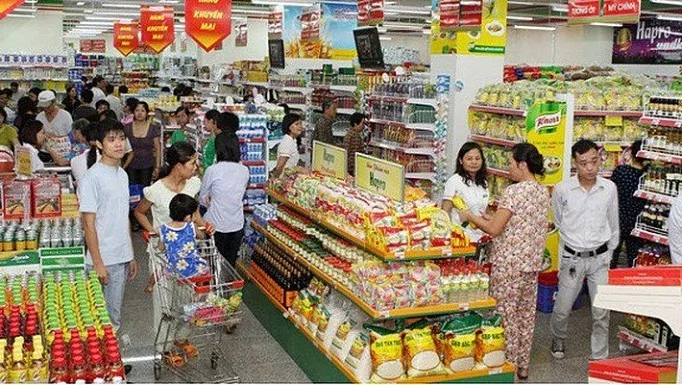
Vietnam’s economy is hugely dependent on exports and foreign trade to maintain a steady growth. Both imports and exports in 2019 had reached USD 517 bn, while GDP was at USD 267 bn, which clearly shows that imports and exports were double that of GDP, and thus the severe lack of exports in 2020 are having a serious impact on the country’s economy.
Counter measures for this loss would be to stimulate the domestic economy to increase growth within the country. Vigorously promoting domestic consumption and growth would for some time provide a substitute growth economy in the current serious decline in demand for goods in the international market. It was seen that during the last few months of the pandemic, there is plentiful supply of agricultural products that are waiting to be exported, but strict international food hygiene and safety standards limit the amount of food products that can be exported from Vietnam. Though, these products can be distributed in the domestic market, certain policies apply here with limitations. Vietnam has had these policies for many years, but some limitations hold back their implementation.
Firstly, Vietnam has joined many free trade agreements, so Vietnamese goods are competing with foreign goods because many imported goods of even better quality come cheaper than Vietnamese goods, which are also supported by tax exemption. Therefore, the policy that Vietnamese people only use Vietnamese goods is not practical in replacing foreign goods with domestically made ones. Secondly, because of lower consumer income, consumption is very limited. The GDP was at USD 267 bn in 2019, and if divided by 96 million people, the GDP capita per year comes to only about USD 3,000.
Thirdly, since the Government itself is not the seller, it can only encourage people to purchase and spend money by promoting products and services under its control, such as public transport fees, medical fees, education, electricity, and water costs. However, these products and services only contribute a small portion of the total needs of the people. People have greater demand for products such as food items and other daily essential products and requirements. These requirements are very basic necessities for the people, and these necessities do not come under the control of the Government, so only businesses and sellers can promote them. For example, the Vietnam Grand Sale 2020 which was introduced in July received only a damp and marginal response.
Fourthly, in order to stimulate consumer demand, one of the solutions is to increase consumer credit. The Governor of the State Bank of Vietnam requires credit institutions to promote consumer credit packages to serve the legitimate needs of the people with reasonable interest rates, simple procedures and suitable provisions of law. The risks of consumer credit are now increasing, because consumer credit is unsecured loan and when people lose their jobs, their ability to pay back debt is curtailed. The State Bank of Vietnam wants credit institutions to boost consumer credit, but they cannot accept too high a level of risk which could turn into bad debts later.
Fifthly, if we want to support consumer demand and stimulate it among the people, we must also increase monetary support for people to have the cash to spend. The Government must simultaneously reduce taxes for businesses to make goods cheaper and more affordable, but both these requirements have budget limitations. This year the budget is very short of revenue due to unprofitability in most businesses, and the high expenditure on health care in dealing with the Covid-19 pandemic. This cost is far higher than it was in 2019. Therefore, support in terms of fiscal policy is very limited, in which tax reduction for businesses does not have much room.
Sixthly, in the current scenario, the Government must fully support affected businesses. We have a welfare package of VND 62,000 bn for those businesses who are facing severe trouble due to the Covid-19 pandemic. However, regulations and administrative procedures make implementation of this package ineffective.
In my opinion, if we want to stimulate domestic consumption and increase consumer demand, the Government must increase the amount in the support package to VND 200,000 or even VND 300,000 bn. This package must be delivered to the people, the unemployed and low-income groups, through open administrative procedures. Although there are fiscal constraints, at this time, bailing out people and businesses and supporting the economy should be a top priority. It is quite likely that public debt will increase when borrowing money from abroad, or by printing more money to tackle higher inflation, but now is the time to implement strong measures and effective support packages to help businesses and the people.




















